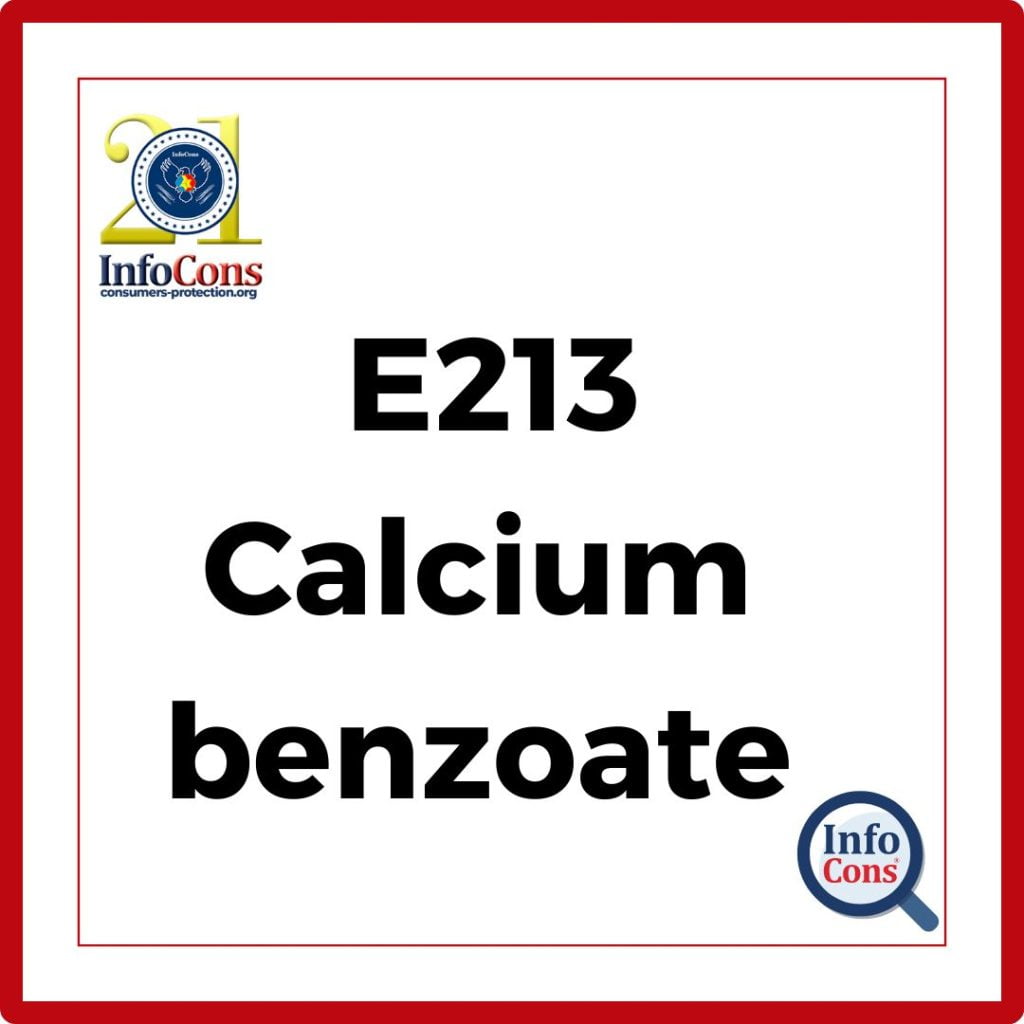What is the Food Additive E 213 ?
E213, also known as calcium benzoate, is a food additive categorized as a chemical preservative. It naturally occurs in fruits like berries, mushrooms, cinnamon, cloves, and other similar substances. Its primary function is to prevent the growth of mold, yeast, and certain bacteria in food products. As a member of the benzoate family, it plays a crucial role in extending the shelf life of a wide range of consumables.
Calcium benzoate (E 213) is the calcium salt of benzoic acid, with the chemical formula Ca(C7H5O2)2. It appears as a white crystalline powder and is highly soluble in water. The compound is effective as a preservative primarily in acidic environments, where it inhibits the growth of potentially harmful microorganisms by disrupting their cellular processes.
Do You Know What E210 – Benzoic Acid is ? InfoCons , Consumers Protection informs you !
What is the Recommended Daily Dose ?
The use of E 213 is regulated by various health authorities worldwide to ensure consumer safety. In the European Union, it is classified as a food additive and is permitted for use within the limits specified by Regulation (EC) No. 1333/2008. Similarly, in the United States, calcium benzoate is recognized as safe for consumption (GRAS) when used according to good manufacturing practices.
Safety Limits: European Food Safety Authority (EFSA) has established an acceptable daily intake of 0-5 mg/kg body weight/day for benzoic acid and its salts, including E213. Products containing E213 must indicate its presence on the label to inform consumers.
Did You Know that Alcohol kills 2.6 million people every year ? – InfoCons, Consumers Protection , informs you !
In Which Products is the Food Additive E213 Found ?
Benzoates are also used in combination with sorbates in products such as:
- Flavored non-alcoholic beverages (soft drinks)
- Low-alcoholic beverages
- Liquid tea concentrates (used in dispensers)
- Some preserved fruit and vegetable products
- Low-sugar jams and jellies
- Olives and olive-based products
- Fish products
- Shellfish, shrimp, mollusks
- Emulsified and non-emulsified sauces
- Spices, seasonings, mustard
- Prepared salads
- Dairy-based desserts that are not heat-treated
- Preservation of liquid eggs
- Dietetic foods for special medical purposes
- Liquid dietary supplements
- Chewing gum
Read Also – E300 ascorbic acid . InfoCons Consumer Protection tells you which food products contain this food additive.
Contraindications and Risks
While E213 is generally considered safe, if not used properly or in excess, some individuals may have sensitivities or allergies to benzoates. In rare cases, it can cause reactions such as rashes or asthma-like symptoms. Therefore, regulatory bodies maintain strict guidelines on its use to minimize any potential risks.
High doses and prolonged consumption can lead to gastric irritation, anorexia, vomiting, and damage to the liver and kidneys. When combined with azo food colorings, it can promote hyperactivity in children (ADHD syndrome). It is not allowed in products for infants and young children.
Download the InfoCons App !
Look for products that have a cleaner label or use natural additives. By installing Consumer Protection InfoCons App and scanning the barcodes of food products, you can find out the number and type of food additives they contain.
Author – Cosmina Nițu
Master in Nutrition – Infant and new born nutrition
Sources:
https://www.efsa.europa.eu/en/ – European Food Safety Authority (EFSA)
InfoCons – European Organization for Consumers Protection and Promotion of Programs and Strategies , a full member of the World Organization Consumers International, founding member of the Federation of Consumer Associations, and member of ANEC.
